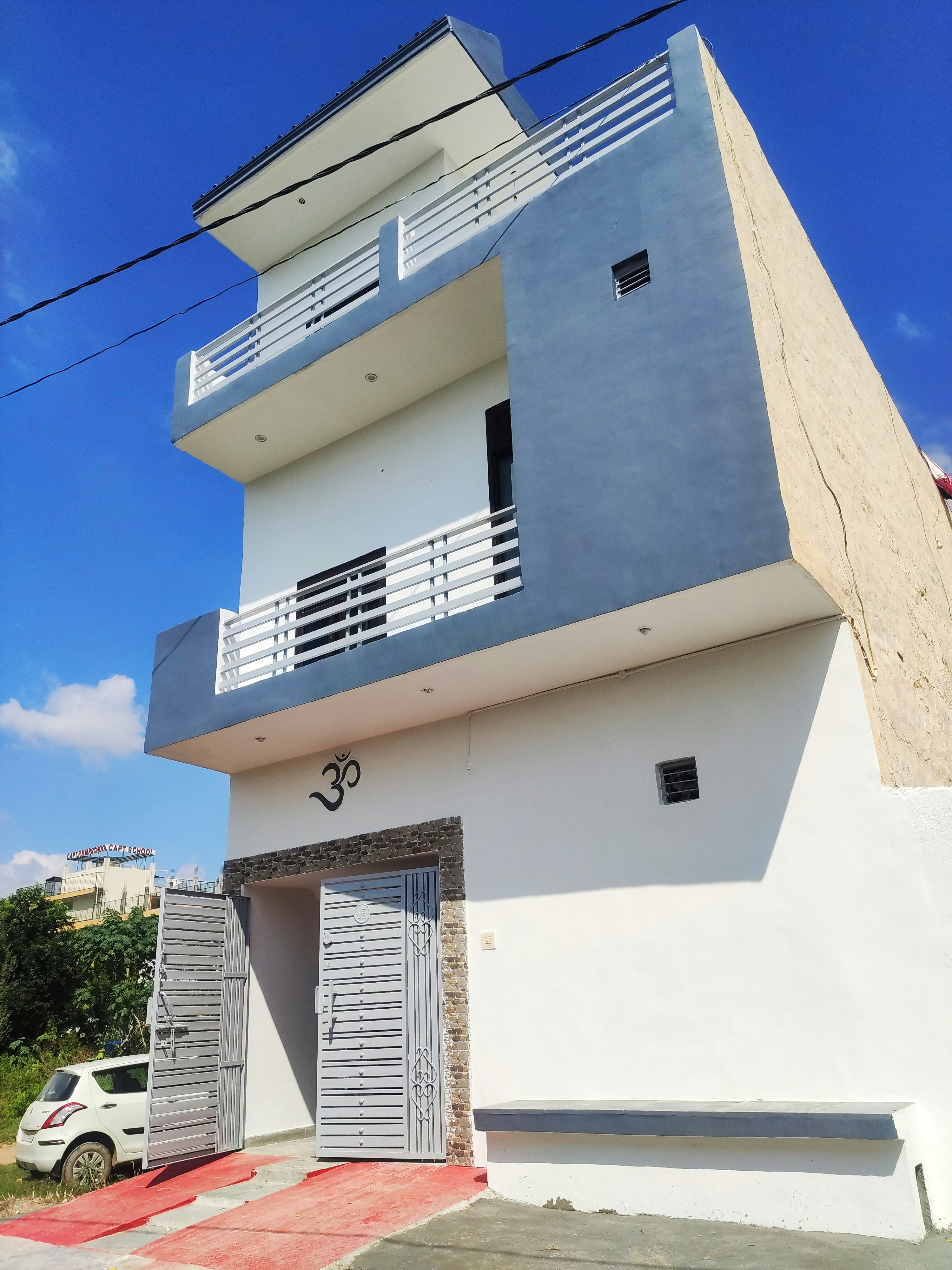Understanding the Indian Real Estate Market
The Indian real estate market has witnessed significant evolution in recent years, influenced by a combination of government policies, economic conditions, and changing consumer preferences. For first-time homebuyers in India, it is essential to grasp the current trends and various dynamics at play within this expansive market.
One prominent trend is the gradual shift towards affordable housing. The government’s push for housing for all has led to various schemes aimed at making homeownership accessible, particularly for first-time buyers. The Pradhan Mantri Awas Yojana (PMAY) is one such initiative that provides subsidies on home loans, making it easier for new entrants to secure their first property. In addition, the introduction of RERA (Real Estate Regulation and Development Act) has enhanced transparency and accountability within the sector, thereby protecting buyers from fraudulent practices and ensuring project completion on time.
Pricing in the Indian real estate market varies significantly across regions. Urban centers like Mumbai, Delhi, and Bengaluru are often characterized by high property values due to economic opportunities and favorable infrastructure. Conversely, tier-2 and tier-3 cities may offer more affordable options and faster appreciation potential. Thus, first-time homebuyers should consider their budget alongside these pricing dynamics when exploring potential locations.
Market sentiment is also influenced by factors such as interest rates, which directly affect home loan affordability. As of now, interest rates in India remain relatively low, creating an opportune environment for buyers looking to secure favorable financing. Furthermore, macroeconomic factors such as GDP growth, employment rates, and consumer confidence play a significant role in shaping the landscape. Thus, understanding these aspects can greatly aid first-time homebuyers in their decision-making process.
In conclusion, by staying informed about current trends, pricing, and government initiatives within the Indian real estate market, first-time homebuyers can navigate their property buying journey more effectively, ultimately leading to a more satisfactory and beneficial investment experience.
Setting Your Budget and Finances
Buying a home is a significant financial commitment, particularly for first-time homebuyers in India. The initial step in this journey should be a comprehensive assessment of your financial situation. Begin by evaluating your total income, including salary, bonuses, and any additional income from investments or side ventures. Equally important is a meticulous review of your monthly expenses, which may include rent, utility bills, groceries, and personal expenses. This understanding will give you a clearer picture of your disposable income and help you determine how much you can realistically allocate towards a home.
Once you comprehend your income and expenditure, you can set a realistic budget for your home purchase. A common rule of thumb is that your monthly home loan payment should not exceed 30% of your monthly income. Additionally, it is essential to account for other costs involved in home buying, such as property taxes, maintenance fees, and insurance, ensuring you have a holistic view of your financial obligations.
Furthermore, your credit score plays a crucial role in your home buying journey. A strong credit score can lead to better home loan options and lower interest rates, significantly impacting your overall financial burden. It is advisable to check your credit report and rectify any discrepancies prior to applying for a home loan. If your credit score requires improvement, consider strategies such as paying down existing debts or maintaining timely payments.
Moreover, exploring various savings and investment options is vital to strengthen your financial readiness for property acquisition. Consider creating a dedicated savings account specifically for your home purchase, or investigate investment avenues that align with your risk tolerance and financial goals. By integrating these financial strategies, first-time homebuyers in India can navigate the challenges of purchasing a home with greater confidence and preparedness.
Choosing the Right Type of Property
When embarking on the journey of being a first-time homebuyer in India, one of the most significant decisions is selecting the right type of property. In India, potential homebuyers have several options, including apartments, villas, and plots of land. Each type comes with its unique advantages and disadvantages, and it’s crucial to understand these facets to make an informed choice.
Apartment living is often recommended for first-time homebuyers due to its affordability and availability in urban areas. Apartments typically offer various amenities, such as security, parking, and recreational facilities, providing a sense of community. However, limitations such as space constraints and homeowners association (HOA) fees can be potential drawbacks. For individuals seeking a vibrant city life, an apartment might serve as the ideal entry point into property ownership.
In contrast, purchasing a villa is often associated with a more luxurious lifestyle. Villas tend to provide larger living spaces, privacy, and the possibility of owning a garden or yard. They are often located in gated communities that offer additional security and amenities. However, first-time homebuyers should consider the higher investment required, along with maintenance costs, which can be significant over time.
Another option is buying a plot of land, which allows for greater customization and flexibility in building a dream home. This type of property can be an appealing investment as it offers potential for appreciation in value. It can also provide the opportunity for homebuyers to design a house tailored to their specific needs and preferences. However, purchasing land often entails a longer timeline and requires more financial planning, including acquiring necessary permits and funds for construction.
Ultimately, choosing the right type of property should align with the homebuyer’s personal lifestyle, financial capabilities, and long-term goals. As a first-time homebuyer in India, performing thorough research and weighing the pros and cons of each property type is essential for making the right decision.
Understanding Legal Documentation and Processes
Purchasing a home is a significant milestone for any first time homebuyer in India, and understanding the legal documentation involved is crucial to ensuring a smooth transaction. Among the key documents, the sale agreement stands out as a vital piece of paperwork that outlines the terms and conditions agreed upon by both the buyer and the seller. This document typically includes details such as the purchase price, payment schedule, and any specific conditions or contingencies related to the sale. It is paramount that first time homebuyers carefully review this agreement before signing to avoid potential misunderstandings.
Another fundamental document is the title deed, which establishes the ownership of the property. This document must clearly demonstrate that the seller has the legal right to transfer property ownership to the buyer. Furthermore, a clear title deed is critical to safeguarding the buyer’s interests, ensuring that there are no encumbrances or disputes related to ownership. Verification of the title deed is therefore a necessary step in the property buying guide India.
In addition to the sale agreement and title deed, home loan documents play a significant role in the property acquisition process. These documents not only outline the terms of the mortgage but also include information about the borrowing amount, interest rates, and repayment schedules. First time homebuyers often find the home loan process daunting; hence, seeking the guidance of financial advisors or legal experts may prove beneficial. Proper understanding of home loan tips India can facilitate negotiations with banks or financial institutions.
A comprehensive understanding of these legal documents and processes will empower first time homebuyers in India to navigate the real estate market with confidence. Ensuring that all documentation is in order minimizes the risk of legal complications in the future and promotes a hassle-free property acquisition experience.
Finding the Right Real Estate Agent
For first-time homebuyers in India, the role of a real estate agent is crucial in navigating the complexities of property purchases. A proficient agent provides invaluable insights into the local market, helping potential buyers find properties that meet their needs and budgets. Choosing the right real estate agent can significantly simplify the home-buying process, from searching for the perfect property to closing the deal with favorable negotiations.
When selecting a real estate agent, several key qualities should be prioritized. Firstly, look for an agent with substantial experience in the local market. Their knowledge of neighborhoods, property values, and community amenities can greatly benefit first-time homebuyers in India. Secondly, ensure that the agent is responsive and accessible, as timely communication is essential in a competitive market. Additionally, an agent with strong negotiation skills can advocate for better terms and prices, ultimately saving buyers money.
During the interview process, asking the right questions can help in evaluating whether an agent aligns with your needs. Inquire about their previous success with first-time homebuyers, their approach to finding suitable properties, and their familiarity with the home loan process in India. Understanding how they plan to market the properties can also provide insight into their commitment and strategy.
A real estate agent can not only assist in identifying potential properties but also streamline the home loan application process, thereby alleviating stress for first-time buyers. They often have connections with mortgage lenders and can offer home loan tips in India, making it easier to secure financing. Overall, a talented real estate agent can be an invaluable partner in ensuring that your journey as a first-time homebuyer in India is smooth and successful.
Home Loans and Financing Options
For first-time homebuyers in India, understanding home loans and financing options is essential in making informed property investment decisions. Home loans typically comprise a large portion of the financial commitment involved in purchasing a property. Therefore, being acquainted with the types of loans available, as well as the requirements needed to secure them, is imperative.
The most common type of home loan available to first-time homebuyers in India is the traditional home loan offered by banks and financial institutions. These loans usually cover up to 80-90% of the property value. The first-time homebuyer must generally meet specific eligibility criteria, which include income levels, credit history, and the ability to repay the loan over time. An excellent credit score can significantly enhance the chances of obtaining a favorable loan offer.
When applying for a home loan, potential buyers should prepare required documentation, including proof of identity, income stability (such as salary slips, IT returns), and details about the property’s legal status. This documentation will help lenders evaluate the applicant’s financial situation, aiding in the swift processing of the loan application.
Comparing different financing options is another crucial step for first-time homebuyers in India. When assessing various home loans, focus on essential aspects like interest rates, loan tenure, and processing fees. Fixed interest rates may provide stability over time, while floating rates might offer lower initial costs. It is advisable to use online calculators provided by banks to simulate different loan amounts and tenure to get a clearer picture.
Furthermore, potential homebuyers should also consider government-backed schemes aimed at promoting homeownership. These schemes can provide substantial financial assistance, making it easier to secure the best financing deal available.
Conducting Property Inspections
For first-time homebuyers in India, conducting thorough property inspections before finalizing a purchase is a crucial step. This process ensures that potential problems are identified early, helping buyers make informed decisions. A complete property inspection should involve a detailed assessment of various aspects of the home, including structural integrity, amenities, and compliance with local regulations.
When inspecting a property, begin with the structural elements. Check for cracks in walls, dampness in corners, and irregularities in the foundation. Structural issues can be costly to remedy and may affect the long-term value of the property. Additionally, examine the roof for signs of wear and tear, as roofing repairs can also incur significant expenses.
Amenities offered by the property should also be assessed. Look at the quality of fixtures and fittings, the condition of electrical systems, and the overall maintenance of common areas, if applicable. For instance, in apartment complexes, shared facilities like gyms or gardens should be evaluated for their upkeep. Understanding the quality of these amenities can influence your buying decision significantly.
Compliance with local regulations is another critical factor in property buying. Ensure that the property has all necessary approvals from local authorities, including occupancy certificates and authorized building plans. Failure to comply with these regulations can lead to legal disputes in the future. It is advisable to consult with local real estate professionals or legal experts who can guide you through the compliance check.
Finally, do not hesitate to consult professionals, such as home inspectors or architects, as they can provide invaluable insights that may not be readily apparent. They can help identify hidden issues that may require immediate attention or could affect your future investment. By adhering to these guidelines, first-time homebuyers in India can navigate the property buying process more effectively, ensuring a successful and sound investment.
Making an Offer and Negotiating the Price
For first-time homebuyers in India, making an offer on a property can be both exciting and daunting. Once you have identified a property that meets your requirements, the next step is to present a well-thought-out offer. It is advisable to research the current market trends and the recent sale prices of similar properties in the vicinity. This information will help you to formulate a competitive yet realistic offer, ensuring you remain within your budget during the property buying process.
When drafting your offer, it is crucial to include all pertinent details, such as the offered price, earnest money deposit, and any contingencies. Presenting a clear and concise offer will demonstrate to the seller your seriousness and commitment, which can be an advantage in negotiations. Additionally, staying flexible in terms of your offer can also enhance your chances of success; for instance, being open to various closing dates or accommodating the seller’s needs can make your proposal more appealing.
Negotiation is an integral part of the home buying process in India. As a first-time homebuyer, it is essential to know when to negotiate and how to address counteroffers. Don’t hesitate to consider counteroffers, as they may lead to a more favorable arrangement for both parties. It is advisable to remain calm and collected during negotiations, approaching each discussion with a mindset geared towards finding a middle ground. By engaging in open communication and demonstrating willingness to collaborate, buyers can often achieve a mutually beneficial price.
Budget discipline plays a critical role during negotiations. It is easy to get carried away in the excitement of homeownership, but sticking to your financial plan is essential. To avoid buyer’s remorse, set a firm maximum limit on your offer based on your pre-approved home loan amount and ensure that this figure reflects the true value of the property. By adhering to these principles, you will be well-equipped to navigate this crucial stage of your property buying journey in India.
Finalizing the Purchase and Moving In
Finalizing the purchase of a home is an essential phase in the journey of a first-time homebuyer in India. Once all negotiations are complete and both parties agree on the terms, the next step is to prepare for the transfer of ownership. This process entails the execution of a sale deed, which must be drafted with precision to encapsulate the agreed terms and conditions. It is prudent to engage a legal expert familiar with property laws in India to ensure that all paperwork adheres to statutory requirements.
Before the transfer, the buyer should confirm all the necessary documents for the home loan are in place, as this is crucial for the timely release of funds. Key documents usually include the sale agreement, property title, and encumbrance certificate. The settlement stage may involve other financial considerations, including the payment of taxes, registration fees, and stamp duty. Understanding these costs is part of a comprehensive property buying guide in India, ensuring that first-time homebuyers are not caught off guard.
Once the paperwork is finalized and ownership is successfully transferred, the next significant step is moving into the new property. To facilitate a smooth transition, it is advisable to plan the move meticulously. Creating a timeline for packing, hiring a moving service, and ensuring utilities are set up in the new home can alleviate common stress points associated with moving. Additionally, upon settling in, new homeowners must remain vigilant about post-purchase responsibilities such as regular maintenance, timely payment of property taxes, and understanding the local housing regulations. A fundamental aspect of owning a home is integrating into the community, which can further enhance the experience of first-time homebuyers in India. The journey indeed continues even after moving in, as new homeowners embark on the path of property management and upkeep.




